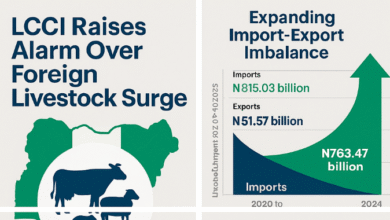SDGs 2030: Economic Commission for Africa worries over poor data availability in Africa

Mr Oliver Chinganya, the Director African Centre for Statistics (ACS), Economic Commission for Africa (ECA) has expressed concern over poor data availability in Africa.
This is contained in a statement issued by the Communications Section of ECA on Wednesday.
The statement said Chinganya said this in a presentation during a virtual news briefing on modernisation of national statistical systems.
The briefing was the inauguration of a monthly engagment between ECA and the media and an avenue to facilitate regular access to experts.
Chinganya in his presentation made particular reference to Africa achieving the Sustainable Development Goals (SDGs).
While making reference to the SDGs Dashboard, he said that availability of data remained poor particularly in areas of gender and equality as well as climate change.
He said that although Africa had made progress in 15 out of the 17 SDGS, it was not enough to achieve the goals of Agenda 2030.
He said the SDGS dashboard was a tool created to track Africa’s progress on achieving Agenda 2030 and Agenda 2063.
According to him, if Africa continues the current trajectory, it will be impossible to reach such goals in 2030.
“Out of the 94 measurable targets, Africa is likely to meet only five at the current progress rate,” he said.
On activities of ECA, Chinganya said a lot was being done in areas of demographic and social statistics, economics statistics and geospatial information statistics among others.
He stressed the centre’s realisation of the need to update the 2008 Systems of National Accounts (SNA), and international standard for recommendations on how to compile measures of economic activity.
“This is a process that ensures that new areas and developments are included in the measurements of our economies across the continent.
“We are assisting countries to revise how their economies are being measured,” he said.
He further highlighted the work of the centre with regard to the modernisation of National Statistical Systems in Africa, innovation, leadership and training.
The Director said COVID-19 came as a mixed blessing as the lockdowns made in-person data collection impossible in most cases.
According to him, recording deaths and births, for instance, became almost impossible.
According to him, the development precipitated adoption of modern technologies to facilitate data collection.
READ ALSO:https://brandeconomy.com.ng/ngx-equities-market-declines-further-by-0-06/
“Part of modernisation is innovation. For this reason we have created a data science campus.
“It has been twinned with the data science campus in Rwanda.
“This campus is really about tapping into the potential of big data, uses of administrative data and other sources including the use of modern technologies,” he said.
On media role in modernisation of national statistical systems, Chinganya said it was crucial, noting that journalists regularly utilised data and statistics to put stories in context.
He called on the need for journalists to collect data from government sources and for governments to make data available so that the progress of countries could be recorded.
The director assured that ACS would be organising series of sessions for journalists on data and statistics in collaboration with the ECA Communication and Media Relations Section (CMRS).
He said this would boost statistical literacy, adding that CMRS had announced plans to inaugurate an ECA Media Award to celebrate good quality reportage on data and statistics.
Meanwhile, Nita Deerpalsing, the Director Publications, Conference and Knowledge Management Division, ECA, urged journalists not to lose sight of their “crucial role” in helping Africa meet its development goals.
(NAN)











